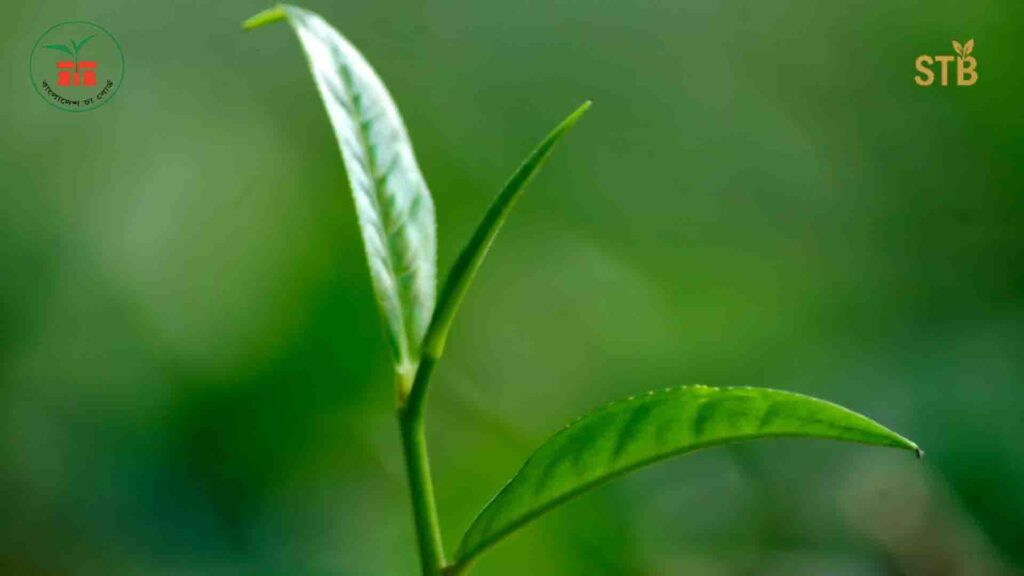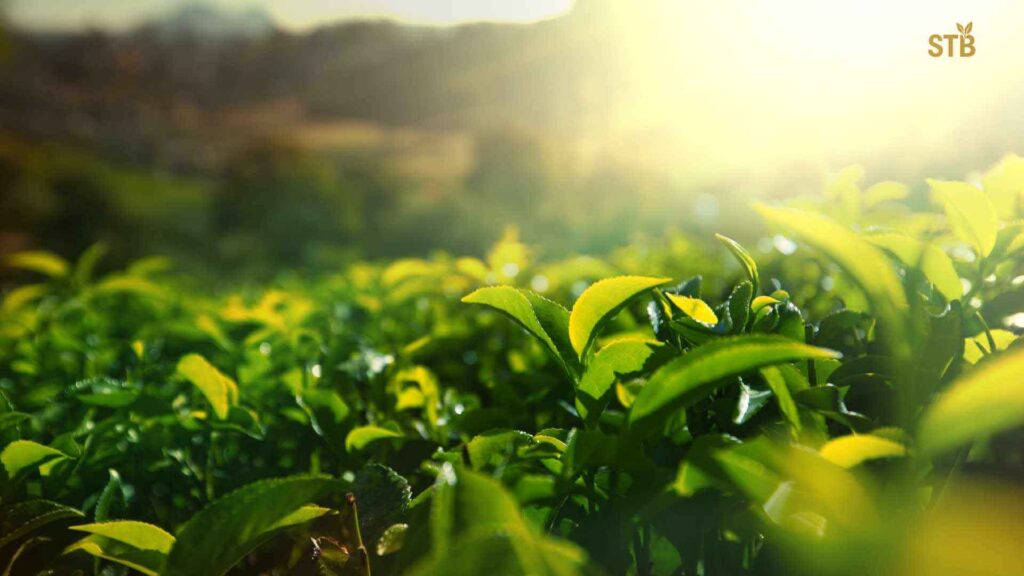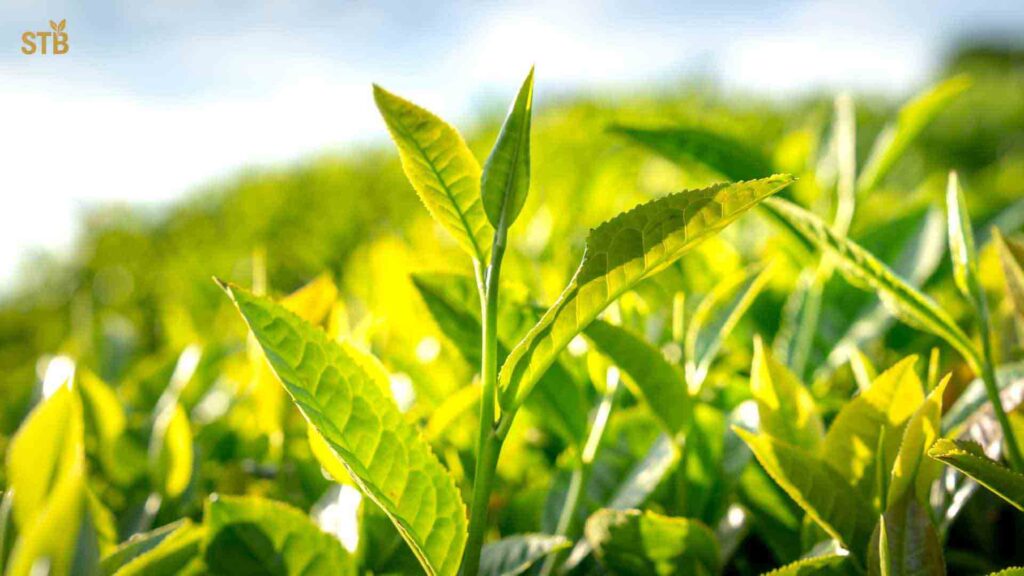The Vital Role of the Bangladesh Tea Board
Established by the Tea Ordinance of 1977, this autonomous body plays a crucial role in regulating and fostering tea cultivation throughout the nation. This institution, however, traces its origins further back, with the first subcontinental tea gardens emerging in 1840 near Chittagong, followed by commercial cultivation commencing in 1857 with the establishment of Mulnicherra Estate in Sylhet. The Bangladesh Tea Board serves as the central authority for tea production, trade, and research, encompassing a wide array of responsibilities aimed at enhancing the industry’s competitiveness and sustainability.
It actively supervises the quality control of tea products, implements development projects, and promotes Bangladeshi tea in international markets. Its multifaceted mandate also includes providing licenses for industrial activities within the tea sector and maintaining its operations through a tax levied on tea producers. This organizational structure allows the Bangladesh Tea Board to fund its extensive activities, including the critical research conducted by the Bangladesh Tea Research Institute, ensuring continuous innovation and quality improvement within the industry.
Moreover, the Board coordinates with various stakeholders, including the Bangladesh Tea Association and tea worker unions, to ensure equitable practices and the welfare of tea garden laborers, who are considered industrial workers under the Bangladesh Labour Act of 2006. This comprehensive approach underlines the Board’s commitment to both the economic prosperity and social responsibility within the tea sector, thereby ensuring its long-term viability and growth.
The Board’s strategic initiatives also focus on modernizing cultivation techniques and processing infrastructure, thereby aiming to elevate the global standing of Bangladeshi tea. Its “Vision 2021” strategic development plan exemplifies this dedication, aiming to significantly enhance production, improve tea quality, and boost export figures. Such forward-thinking initiatives are critical for an industry that has faced significant challenges, including extensive damage during the 1971 independence war and the subsequent nationalization of numerous estates.
The subsequent reprivatization efforts, beginning in 1982, marked a pivotal shift towards market-driven growth and renewed investment in the sector, leading to a period of revitalization and increased output. Indeed, between 1972 and 2018, Bangladesh experienced significant growth in tea production, with an average annual increase of 1.89%, largely driven by expansion in cultivation area and improved yield.
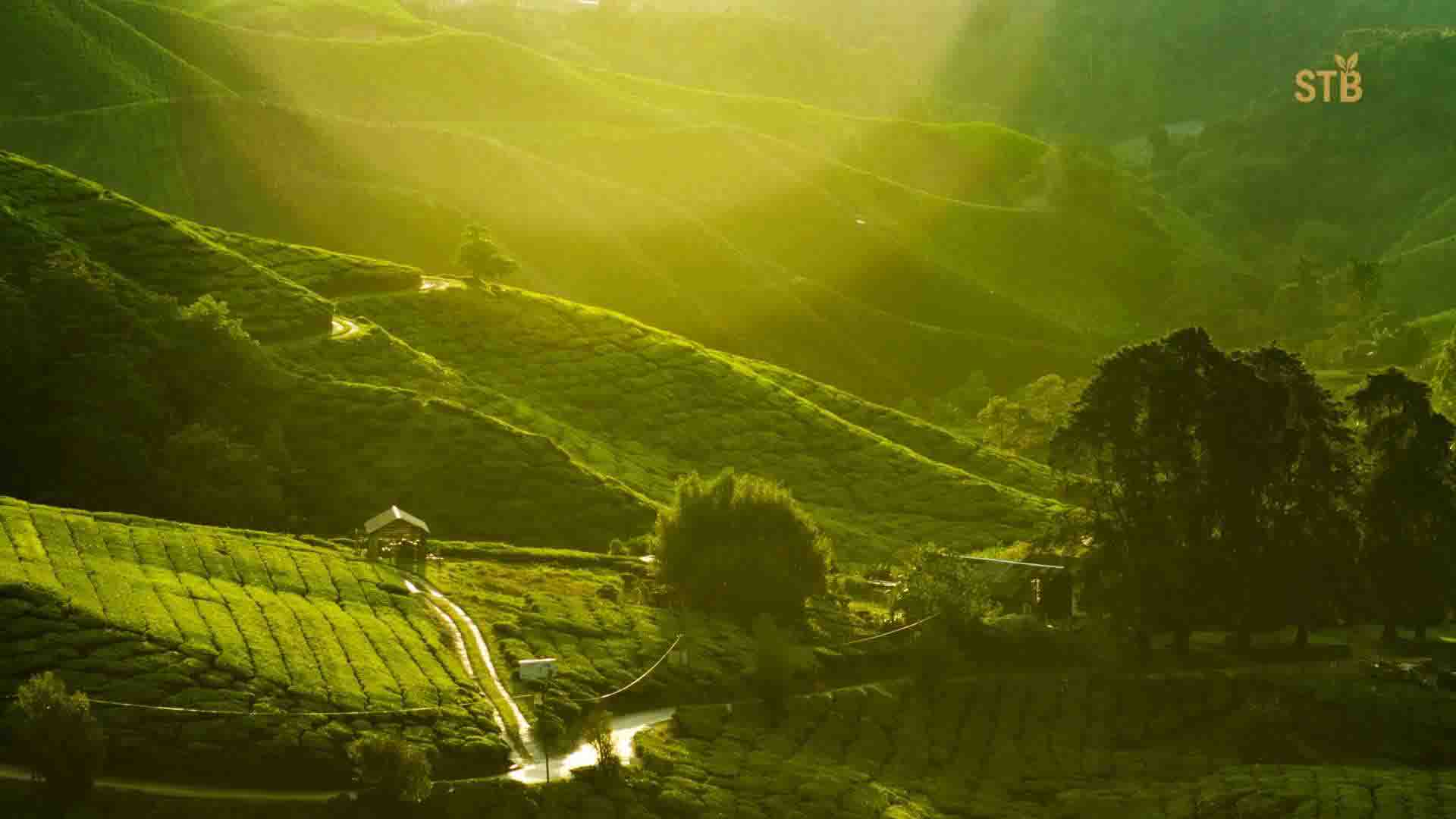
Historical Overview of the Bangladesh Tea Board
While the formal establishment of the Bangladesh Tea Board in 1977 solidified its regulatory framework, the historical trajectory of tea cultivation in the region significantly predates this, with early commercial ventures laying the groundwork for a structured industry. The cultivation of tea in Bangladesh can be traced back to the British colonial era, with the first commercial tea garden, Mulnicherra Estate, being established in Sylhet in 1857, following earlier experimental plantings near Chittagong in 1840.
These pioneering efforts laid the foundation for an industry that now boasts over 160 tea gardens, employing more than 118,000 workers across various regions including Sylhet, Moulvibazar, Habiganj, Rangamati, Brahmanbaria, and Panchagarh. This widespread presence underscores the tea industry’s significance as a major agro-based, labor-intensive sector in Bangladesh. The sector is a vital contributor to the national economy, holding the 8th position globally in terms of production area and 10th in overall tea production.
Despite its significant production volume, Bangladesh faces the challenge of balancing increasing domestic consumption with export potential, having experienced a substantial rise in internal tea demand over the past two decades. This surge in domestic consumption, coupled with increasing production, has led to Bangladesh becoming a net importer of tea in certain years, highlighting the intricate balance between meeting local demand and achieving export targets.
The Tea Board’s role thus extends to strategic planning for increasing output and enhancing quality to meet both internal requirements and international market demands, a task made more complex by environmental factors such as unpredictable weather patterns. Such climatic variations, particularly in temperature and rainfall, significantly influence tea yield and require adaptive strategies to maintain productivity. For instance, prolonged droughts and excessive rainfall have been shown to negatively impact tea production, necessitating robust climate-resilient agricultural practices and ongoing research from institutions like the Bangladesh Tea Research Institute.
Early Beginnings and Establishment
The foundation of the tea industry in Bangladesh, then East Bengal, was rooted in the colonial economic imperatives of the British Empire, which sought to establish new sources of tea production outside of China. This led to the systematic development of tea estates in the region, particularly in the fertile Surma Valley, which proved to be ideally suited for tea cultivation due to its climatic and soil conditions.
Consequently, the expansion of tea gardens, particularly in the greater Sylhet region, including Moulvibazar and Habiganj, established it as a primary hub for tea production within Bangladesh, significantly contributing to the nation’s economic growth and foreign currency earnings. Moulvibazar alone accounts for 55% of the country’s total tea production, with Habiganj contributing another 22%, showcasing their critical role in the industry.
This concentrated production highlights the specialized infrastructure and expertise developed in these areas, crucial for sustaining the industry’s output and quality. The labor force for these burgeoning tea estates was predominantly sourced from marginalized communities, often through coercive recruitment practices that created a legacy of social and economic challenges still prevalent today.
Evolution and Key Milestones
The institutionalization of the Bangladesh Tea Board in 1977 marked a significant step in formalizing oversight and developmental initiatives for this historically significant sector. This establishment aimed to provide a structured framework for regulating tea production, promoting research, and facilitating marketing efforts, especially in the wake of the disruptions caused by the Liberation War.
The Board’s responsibilities expanded to include promoting the welfare of tea garden workers and modernizing the industry to enhance global competitiveness, especially as Bangladesh produces approximately 2% of the world’s tea. This institutional evolution was crucial for navigating challenges such as climate change, which has demonstrably impacted tea yields through altered rainfall patterns and temperature fluctuations, necessitating adaptive agricultural measures.
The tea industry also faces considerable challenges related to the aging tea plants, with many bushes being very old and propagated through ‘T’ budding rather than from seed, which can lead to a significant loss in production. Further complicating the industry’s modernization are issues such as a shortage of capital, limited access to sophisticated machinery for processing, and the persistent challenge of low market prices juxtaposed with high production costs.
These multifaceted challenges necessitate comprehensive strategic interventions from the Bangladesh Tea Board, focusing on sustainable practices, technological advancements, and equitable labor policies to ensure the industry’s long-term viability and growth. This includes fostering research into drought-resistant tea varieties and efficient irrigation techniques to mitigate the effects of erratic weather patterns, alongside initiatives to upgrade processing facilities and secure fair trade agreements to stabilize market prices and improve worker livelihoods.

Functions and Responsibilities of the Tea Board
The Bangladesh Tea Board, as the primary regulatory and promotional body, holds a multifaceted mandate essential for the sustainable growth and global competitiveness of the nation’s tea industry. Its core functions encompass the formulation and implementation of policies, the promotion of tea consumption both domestically and internationally, and the crucial oversight of research and development activities to enhance tea cultivation and processing.
This includes ensuring quality control through standardized practices and supporting technological advancements to improve efficiency and product quality. Moreover, the Board plays a pivotal role in market stabilization by monitoring production trends, managing supply chains, and exploring new export opportunities to mitigate economic vulnerabilities. Furthermore, it is tasked with safeguarding the welfare of tea garden laborers, a significant portion of whom are women, and addressing socio-economic challenges within tea-growing communities.
Specifically, the Board’s initiatives often target poverty alleviation and food security within these communities, aligning with broader sustainable development goals. A particular focus is placed on the promotion of fair trade practices and organic certifications, which not only enhance the marketability of Bangladeshi tea but also ensure equitable returns for growers and improved living conditions for workers.
Regulatory Oversight
Through robust regulatory frameworks, the Bangladesh Tea Board ensures adherence to national and international standards, thereby safeguarding the quality and integrity of Bangladeshi tea products. This encompasses the enforcement of cultivation guidelines, processing protocols, and packaging standards to meet diverse market demands and consumer expectations.
The Board’s regulatory purview extends to licensing tea estates, monitoring production volumes, and implementing measures to prevent the adulteration of tea, all of which are critical for maintaining the industry’s reputation and consumer trust. Moreover, the Board actively participates in setting pricing policies and ensuring fair competition among producers, which directly impacts the economic viability of tea gardens across the country.
Additionally, it plays a crucial role in mediating disputes between various stakeholders, including tea garden owners and laborers, to foster a harmonious working environment and ensure compliance with labor laws. These regulatory efforts are vital for upholding ethical standards within the tea industry, particularly concerning the rights and living conditions of the often-marginalized tea garden workers. Despite these efforts, challenges persist in ensuring equitable wages and improved living conditions for tea garden workers, many of whom are women and members of non-Bengali ethnic minorities.
These workers frequently face inadequate housing, limited access to clean water and sanitation, and wages that often fall below basic living standards, exacerbating their vulnerability. Such disparities underscore the ongoing necessity for the Board to intensify its advocacy for improved labor practices and to enforce more stringent compliance with established welfare provisions to uplift the socio-economic status of these communities.
Research and Development
The Board also actively supports the Bangladesh Tea Research Institute, a critical institution dedicated to advancing tea science through innovative agricultural techniques, pest management strategies, and the development of high-yielding, disease-resistant tea varieties. These research endeavors are vital for enhancing the resilience and productivity of the tea industry in the face of climate change and evolving market demands.
Furthermore, the institute investigates novel processing methods aimed at improving tea quality and developing value-added products to diversify market offerings and enhance profitability. Such initiatives are pivotal for ensuring the long-term sustainability and competitiveness of Bangladesh’s tea sector, aligning with global trends towards specialized and high-quality tea products.
This commitment to research and development also extends to exploring sustainable cultivation practices, such as organic farming and water conservation, which are increasingly important for ecological balance and consumer preference. The outcomes of these research initiatives are then disseminated to tea garden owners and workers through training programs and workshops, facilitating the adoption of best practices and fostering a culture of continuous improvement across the industry.
Promotion and Marketing
The Bangladesh Tea Board is also instrumental in promoting Bangladeshi tea both domestically and internationally through strategic marketing campaigns, trade fair participation, and the establishment of quality certification programs. These efforts aim to enhance brand recognition and open new markets for Bangladeshi tea, emphasizing its unique flavor profiles and the sustainable practices employed in its production.
A significant aspect of these promotional activities involves highlighting the geographical indications and unique terroir that contribute to the distinctiveness of Bangladeshi tea, thereby appealing to discerning global consumers. Moreover, the Board collaborates with international bodies and trade associations to align Bangladesh’s tea industry with global best practices and to overcome trade barriers, ensuring broader market access. These promotional strategies often include digital marketing initiatives and partnerships with e-commerce platforms to reach a wider global audience, particularly for specialized organic tea varieties.
Additionally, the Board aims to leverage the increasing global demand for ethical and sustainably produced goods by showcasing the socio-economic benefits derived by tea workers through responsible sourcing practices. These efforts collectively strengthen Bangladesh’s position in the global tea market, fostering economic growth and improving livelihoods within the tea industry.
Supporting Tea Farmers and Industry Workers
The Bangladesh Tea Board plays a crucial role in uplifting the livelihoods of tea farmers and industry workers by implementing various welfare programs and ensuring the enforcement of labor laws. This includes advocating for fair wages, access to healthcare, education, and improved housing conditions, which are critical for the well-being of the predominantly marginalized tea garden communities. Despite these efforts, ensuring equitable wages and improved living conditions remains a persistent challenge, necessitating continued intervention and advocacy from the Board.
These efforts are particularly significant given that tea plantation workers in Bangladesh often face severe deprivation, with daily wages considerably lower than those in neighboring countries, underscoring the urgent need for enhanced support and policy interventions to improve their socio-economic status.
For instance, many tea garden workers, a significant portion of whom are women, live in near servitude, facing inadequate housing, limited access to basic amenities, and a lack of awareness regarding their fundamental rights. Furthermore, the payment system often promotes a form of modern slavery, as workers must meet daily targets, and any shortfall leads to wage cuts, compelling them to work longer hours or involve family members.
Quality Control and Assurance
The Bangladesh Tea Board is also deeply involved in establishing and maintaining stringent quality control measures, from cultivation to packaging, to ensure that Bangladeshi tea meets international standards and consumer expectations. This involves regular inspections, laboratory testing, and the implementation of Good Agricultural Practices and Good Manufacturing Practices across all tea estates and processing units. Such rigorous quality assurance protocols are critical for upholding the reputation of Bangladeshi tea in competitive global markets and for ensuring consumer confidence in its safety and authenticity.
The Board’s commitment extends to developing sophisticated traceability systems, allowing consumers to verify the origin and production journey of their tea, thereby reinforcing transparency and ethical sourcing. These comprehensive measures not only safeguard the integrity of the product but also contribute to the economic upliftment of the tea-growing regions by ensuring fair trade practices and sustainable environmental stewardship. Moreover, the Board actively promotes research into climate-resilient tea varieties and sustainable cultivation practices to mitigate environmental impact while ensuring consistent quality and yield.
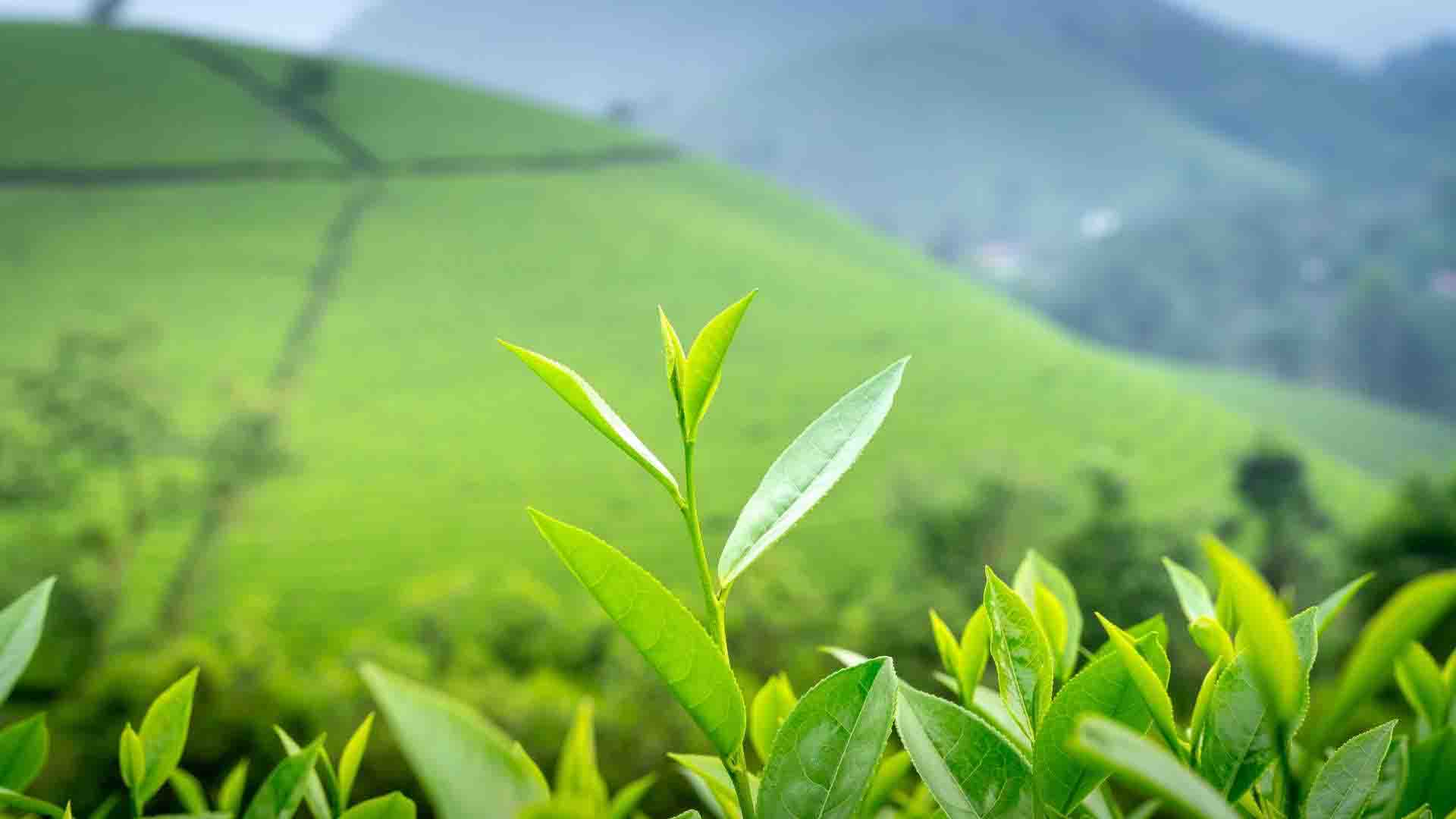
The Bangladesh Tea Research Institute (BTRI)
This institute, a key arm of the Bangladesh Tea Board, stands as the scientific backbone of the nation’s tea industry, spearheading innovation and sustainable development through cutting-edge research and technological advancements. It focuses on developing new tea varietals, optimizing cultivation techniques, and enhancing processing methods to improve both the quality and yield of Bangladeshi tea.
This includes extensive research into pest and disease management, soil health, and climate-resilient tea plant varieties, all crucial for mitigating the impacts of environmental challenges on tea production. The institute also investigates the socio-economic impacts of rainfall patterns on tea yield and quality, linking these environmental factors to the cost of production and profitability within the sector.
Furthermore, the Bangladesh Tea Research Institute plays a vital role in transferring this knowledge to small tea growers through extensive training and extension services, enabling them to adopt advanced technological packages for increased green leaf production.
Research Focus and Objectives
The institute’s research initiatives are strategically aligned with national agricultural policies to ensure food security and sustainable development, ultimately contributing to the economic resilience of tea-producing regions. These initiatives often involve interdisciplinary approaches, integrating agronomy, biotechnology, and socio-economic studies to address the multifaceted challenges faced by the tea sector.
The primary objectives of its research include enhancing tea quality and yield, developing disease-resistant varieties, and promoting sustainable farming practices. Specific projects include the development of drought-resistant tea clones and the implementation of integrated pest management strategies, reducing reliance on chemical inputs and fostering ecological balance within tea gardens.
Key Achievements and Innovations
The Bangladesh Tea Research Institute has achieved significant breakthroughs, such as the development of new high-yielding and disease-resistant tea clones, and has introduced innovative cultivation techniques that have substantially improved tea quality and productivity across the country. These advancements are crucial for mitigating the adverse effects of climate change, such as increased frequency of droughts and extreme weather events, which significantly threaten tea plant productivity and metabolic concentrations.
Moreover, the institute’s work in optimizing fertilizer application and irrigation practices has led to more efficient resource utilization, further bolstering the industry’s sustainability and economic viability. It also provides critical annual predictions of tea yield and quality, enabling farmers to plan production and field management practices effectively.
Impact of the Tea Board on the Bangladesh Tea Industry
The overarching influence of the Bangladesh Tea Board extends to significant policy formulation and regulatory enforcement, directly shaping the operational landscape and developmental trajectory of the entire tea sector. This encompasses a wide array of responsibilities, from setting standards for tea cultivation and processing to facilitating market access and promoting the distinct qualities of Bangladeshi tea on both domestic and international fronts.
Its regulatory framework ensures adherence to ethical practices and sustainable environmental stewardship, crucial for maintaining the long-term viability and global competitiveness of the industry. This comprehensive oversight is instrumental in driving economic growth within tea-producing regions and in safeguarding the livelihoods of countless individuals dependent on the tea industry.
The Board’s strategic initiatives, including the promotion of modern cultivation techniques and the establishment of fair trade mechanisms, directly contribute to improving the socio-economic conditions of tea garden laborers and small tea growers, who often face unique challenges in the supply chain.
Economic Contributions
The tea industry, under the guidance of the Bangladesh Tea Board, serves as a significant generator of foreign exchange earnings for Bangladesh, contributing substantially to the national economy. Beyond its direct economic impact, the industry also creates extensive employment opportunities, both directly in tea gardens and indirectly in associated sectors like processing and distribution.
This widespread economic contribution underscores the critical role of the Bangladesh Tea Board in fostering economic stability and growth within the country. Furthermore, the Board’s efforts in promoting tea tourism and developing value-added tea products also diversify revenue streams and enhance the economic footprint of the tea sector. Additionally, the tea sector’s contribution to the national exchequer through various taxes, such as sales tax, corporate tax, and income tax, further solidifies its position as a vital economic pillar.
Social Impact on Tea-Growing Communities
The social impact of the tea industry in Bangladesh is profound, particularly concerning the livelihood and empowerment of its workforce, a significant portion of which comprises women. These women are largely employed as tea leaf pickers, often working over eight hours per day, while men typically hold roles in factories, as supervisors, or as security guards.
Despite their pivotal role, tea garden laborers, especially women, often contend with low wages, inadequate housing, and limited access to essential services, highlighting significant socio-economic disparities within these communities. These challenges often place tea garden workers among the poorest and most marginalized segments of organized labor, with their livelihood status showing little improvement over time.
Environmental Sustainability Efforts
In response to these conditions, the Bangladesh Tea Board and associated stakeholders have increasingly prioritized initiatives aimed at fostering environmental sustainability within the tea industry, recognizing its crucial link to the long-term well-being of these communities and the tea ecosystem. These efforts encompass the promotion of organic farming practices, efficient water management, and biodiversity conservation, all designed to mitigate the ecological footprint of tea cultivation and ensure its future viability.
Such endeavors are essential for safeguarding natural resources and maintaining the delicate ecological balance that underpins high-quality tea production. Moreover, the implementation of sustainable land management techniques and the reduction of pesticide use are critical steps toward enhancing ecosystem resilience and protecting the health of both workers and consumers. The BTB also plays a vital role in research and advocacy for fair wages and improved living conditions for tea garden workers, though significant disparities still exist in wages and healthcare access compared to other regions.

Challenges Faced by the Bangladesh Tea Board
Despite its significant contributions, the Bangladesh Tea Board encounters various complex challenges that impede the sustained growth and modernization of the tea industry. These challenges range from issues related to climate change impacts and fluctuating global tea prices to internal matters concerning labor welfare, infrastructure development, and the adoption of advanced agricultural practices. Addressing these multifaceted issues requires comprehensive strategies and collaborative efforts among government bodies, tea garden owners, and labor unions to ensure the industry’s resilience and equitable development.
One pervasive challenge remains the prevalence of exploitative working conditions for tea garden laborers, largely due to weak enforcement mechanisms and the limited access workers have to grievance redress systems. This situation is exacerbated by the often-ineffective or absent trade unions, which struggle to represent a workforce largely composed of temporary laborers. Moreover, the tea industry often faces an uphill battle against reduced biodiversity, which can lead to long-term damage to production and ecological services, further complicated by the increased cost of pest control when pesticide efficacy declines.
Climate Change and Environmental Concerns
The tea sector in Bangladesh is particularly vulnerable to the adverse effects of climate change, including erratic rainfall, increased temperatures, and more frequent extreme weather events, which directly threaten crop yields and quality. These climatic shifts necessitate the implementation of adaptive measures, such as improved irrigation and drainage systems, to protect tea plants from both drought and waterlogging.
Furthermore, the adoption of drought-resistant tea cultivars and the development of early warning systems for weather-related risks are crucial for enhancing the industry’s resilience against these evolving environmental pressures. Additionally, the unpredictability of monsoon patterns, including periods of excessive rain and subsequent flooding, can severely hamper tea production and quality, underscoring the urgent need for robust climate adaptation strategies.
The recurrent natural disasters, such as floods and cyclones common in Bangladesh, pose a significant threat to tea production, further complicating efforts to maintain consistent yields. Such environmental vulnerabilities demand a proactive and integrated approach to climate-smart agriculture and resource management to ensure the long-term sustainability of the tea industry in Bangladesh.
Another significant environmental concern is soil degradation, which often arises from intensive cultivation practices and inadequate conservation measures, thereby reducing the fertility and productivity of tea estates. This degradation, coupled with an increased reliance on chemical fertilizers and pesticides, contributes to a vicious cycle of environmental decline that further impacts tea plant health and the surrounding ecosystems.
Market Competition and Trade Issues
The Bangladeshi tea industry faces intense competition from established global players, necessitating strategic enhancements in product quality and market positioning to maintain its competitive edge in both domestic and international markets. This competition is further intensified by fluctuating global tea prices and the imperative to meet stringent international quality standards, which often require significant investment in processing technology and agricultural practices.
Moreover, the dominance of a few large tea companies in the global market further exacerbates pricing pressures and limits the bargaining power of smaller producers like those in Bangladesh.
Infrastructure and Technological Limitations
Limited access to modern infrastructure and advanced technological solutions presents a significant hurdle for many tea gardens in Bangladesh, affecting production efficiency and overall competitiveness. This includes inadequate irrigation systems, suboptimal processing facilities, and a lack of automation, all of which hinder the modernization and scaling of operations.
Such technological limitations, coupled with financial constraints and a lack of skilled labor, impede the industry’s ability to adopt sustainable supply chain practices and compete effectively in global markets. Furthermore, the absence of efficient transportation networks for prompt delivery of tea leaves to factories and processed tea to markets contributes to post-harvest losses and diminished product quality.
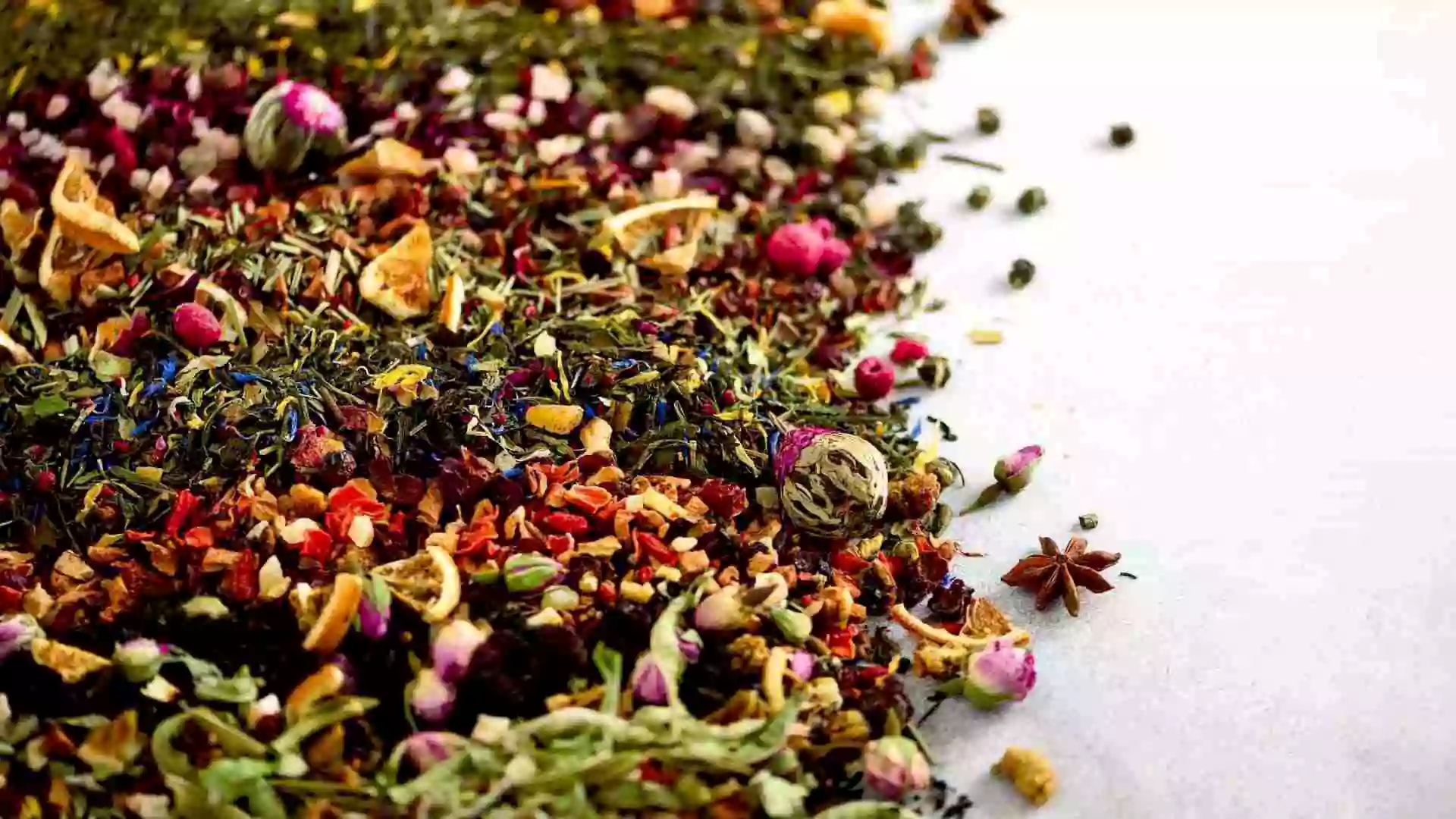
Strategies for Sustainable Growth and Development
To overcome the multifaceted challenges confronting the Bangladesh tea industry, a comprehensive and integrated approach focusing on strategic investments, technological innovation, and robust policy frameworks is imperative. This multi-pronged approach should encompass initiatives aimed at enhancing productivity, improving tea quality, and fostering the socio-economic well-being of tea garden workers and their communities.
Key strategies must include targeted investments in research and development to cultivate climate-resilient tea varieties and optimize cultivation practices, thereby mitigating the impacts of environmental variability. Furthermore, promoting value-added tea products, such as specialty teas and organic blends, can help diversify market offerings and secure higher price points, enhancing the industry’s profitability and sustainability.
Additionally, implementing fair trade practices and improving labor conditions are crucial for ensuring ethical production and attracting socially conscious consumers, which can further strengthen market positioning. Finally, fostering stronger collaborations between government bodies, tea garden owners, research institutions, and international organizations is essential for mobilizing resources and implementing effective, long-term solutions for the sustainable development of the Bangladeshi tea sector.
Innovation in Tea Production and Processing
Investing in cutting-edge agricultural techniques and processing technologies is crucial for optimizing yield, enhancing tea quality, and reducing operational costs. This includes the adoption of precision agriculture methods, such as drone-based monitoring and sensor technologies, to optimize resource allocation and improve crop management.
Furthermore, advancements in post-harvest processing, such as automated sorting and specialized drying techniques, can significantly elevate the quality and market value of Bangladeshi tea, enabling it to compete more effectively on a global scale. Moreover, embracing biotechnological innovations for cultivar improvement, such as developing disease-resistant and high-yielding tea plant varieties, can further bolster productivity and sustainability.
Enhancing Market Access and Competitiveness
A pivotal strategy involves leveraging digital platforms and e-commerce solutions to broaden the reach of Bangladeshi tea producers into international markets, thereby bypassing traditional intermediaries and securing better profit margins. Simultaneously, fostering public-private partnerships can stimulate innovation and investment, helping to overcome existing challenges and capitalize on emerging opportunities in the agro-based industries.
Additionally, developing robust branding strategies, similar to those employed by the Ceylon tea industry, can differentiate Bangladeshi tea products and command higher prices in competitive global markets. Furthermore, direct engagement with international buyers and participation in global trade fairs can facilitate market entry and establish long-term trade relationships.
These strategies, combined with adherence to international quality standards and certifications, are vital for enhancing the global competitiveness and market share of Bangladeshi tea. Such efforts would allow Bangladesh, currently eighth in world tea production with 2.11% of global output, to significantly increase its contribution to the world market and generate substantial foreign currency.
Promoting Sustainable and Ethical Practices
Emphasizing environmentally friendly cultivation methods, such as organic farming and water conservation, along with ensuring fair wages and improved living conditions for tea garden workers, is paramount for securing long-term industry viability and appealing to ethically conscious consumers. This approach not only enhances the industry’s reputation but also contributes to biodiversity preservation and the resilience of tea ecosystems.
These sustainable and ethical practices are integral for meeting evolving global market demands for responsibly sourced products and for ensuring the long-term ecological and social well-being of the tea-growing regions. Furthermore, integrating stringent environmental regulations into trade policies and promoting eco-friendly technologies can foster a balance between trade competitiveness and ecological preservation, drawing insights from countries like Indonesia and South Africa.
Such initiatives are critical for the Bangladesh tea industry to align with global sustainability standards and enhance its appeal in international markets increasingly prioritizing ethical sourcing. These efforts are also crucial for ensuring equitable growth within the industry, distributing benefits more widely across the value chain, and addressing socio-economic disparities within tea-producing communities.
The Tea Board’s Role in Promoting Tea Tourism
Beyond its regulatory and developmental functions, the Bangladesh Tea Board can play a significant role in developing and promoting tea tourism, transforming tea estates into unique tourist destinations. This initiative not only diversifies revenue streams for tea garden owners but also creates employment opportunities for local communities and provides visitors with an immersive cultural experience.
Similar to wine tourism, tea tourism contributes to the sustainable development of the tea industry by connecting consumers directly with the product’s origin. This emerging sector, much like niche tourism focusing on nature-based visits to tea plantations, offers an experiential dimension that can significantly boost regional economies and cultural exchange. To further enhance this, the Board could implement structured programs for tea estate modernization and worker welfare, drawing inspiration from historical examples where British colonial regimes established tea industries, as seen in Darjeeling.
Such initiatives could include developing heritage tea trails, establishing tea-themed resorts, and organizing educational tours that highlight the intricate process of tea cultivation and production, thereby attracting a broader demographic of tourists. This multi-faceted approach to tea tourism development would not only bolster the financial resilience of tea estates but also elevate Bangladesh’s profile as a distinctive cultural and agro-tourism destination on the global stage.
Developing Tea Tourism Destinations
This involves identifying key tea-growing regions with inherent scenic beauty and cultural significance, such as Sreemangal, to brand them as premier tea tourism destinations. This involves strategic infrastructure development, including improved accessibility, accommodation, and visitor facilities, to support a thriving tourism ecosystem. Moreover, the development of comprehensive tourism packages, integrating activities like tea tasting, factory tours, and cultural performances, can enrich the visitor experience and extend their stay.
Collaborations with local communities are also crucial for offering authentic experiences and ensuring that tourism benefits are shared equitably among residents. Such collaborative efforts can also lead to the preservation of indigenous cultures and traditions, transforming tea gardens into vibrant hubs of cultural exchange and sustainable development. Furthermore, integrating tea tourism with broader eco-tourism initiatives could amplify its appeal, attracting environmentally conscious travelers seeking authentic experiences. This approach can transform tea estates into dynamic centers for both agricultural production and cultural immersion, further enhancing their economic viability.
Marketing Bangladesh as a Tea Tourism Hub
A robust marketing strategy is essential to position Bangladesh as a leading tea tourism destination globally, highlighting its unique tea heritage, diverse landscapes, and cultural richness. This strategy should involve targeted digital campaigns, participation in international travel expos, and collaborations with travel bloggers and influencers to reach a wider audience.
Additionally, developing compelling narratives around the ‘Bangladesh Tea Research Institute’ and showcasing the country’s unique tea varieties can captivate potential tourists and establish a distinct identity in the competitive global tourism market. The establishment of clear guidelines and quality standards for tea tourism operators will further enhance the visitor experience, ensuring consistent service delivery and promoting repeat visits.

Future Outlook and Vision for the Bangladesh Tea Board
The Board’s future vision should encompass leveraging technological advancements for precision agriculture in tea cultivation and fostering international partnerships to expand market access for Bangladeshi tea products. This includes promoting sustainable farming practices and investing in research and development to enhance tea quality and yield, thereby ensuring the industry’s long-term viability and global competitiveness.
Furthermore, embracing digital platforms for direct-to-consumer sales and enhancing supply chain transparency can build consumer trust and open new avenues for revenue generation, similar to strategies employed by successful e-commerce companies. Ultimately, the Bangladesh Tea Board’s forward-looking strategies must integrate ecological preservation with economic expansion, ensuring the tea industry’s resilience and adaptability to global market shifts.
Moreover, addressing the historical challenges of labor rights and worker welfare remains paramount for a truly sustainable and ethically sound tea industry, moving beyond the traditional British systems that have largely defined the sector.
Adapting to Global Trends and Challenges
To maintain competitiveness, the Bangladesh Tea Board must proactively respond to evolving consumer preferences, such as the increasing demand for organic and fair-trade certified teas, and mitigate the impacts of climate change on tea cultivation through innovative agricultural practices. This requires ongoing investment in research and development to introduce drought-resistant tea varieties and implement water-efficient irrigation systems, ensuring the long-term sustainability of tea production.
Furthermore, adopting advanced processing technologies can elevate the quality of Bangladeshi teas, enabling them to command higher prices in international markets. Additionally, the Board must actively engage in policy advocacy to create a favorable regulatory environment that supports technological adoption and facilitates market access for tea producers.
Strategic Goals for the Next Decade
The Bangladesh Tea Board should aim to increase per-hectare yield, which currently lags behind other major tea-producing nations, through improved agricultural practices and the replacement of older bushes with higher-yielding varieties. Additionally, diversifying tea products to include specialty teas and herbal infusions can capture niche markets and enhance the industry’s overall profitability. Simultaneously, fostering robust omni-channel marketing strategies, particularly leveraging digital platforms, is crucial for reaching diverse consumer segments and optimizing the tea supply chain.
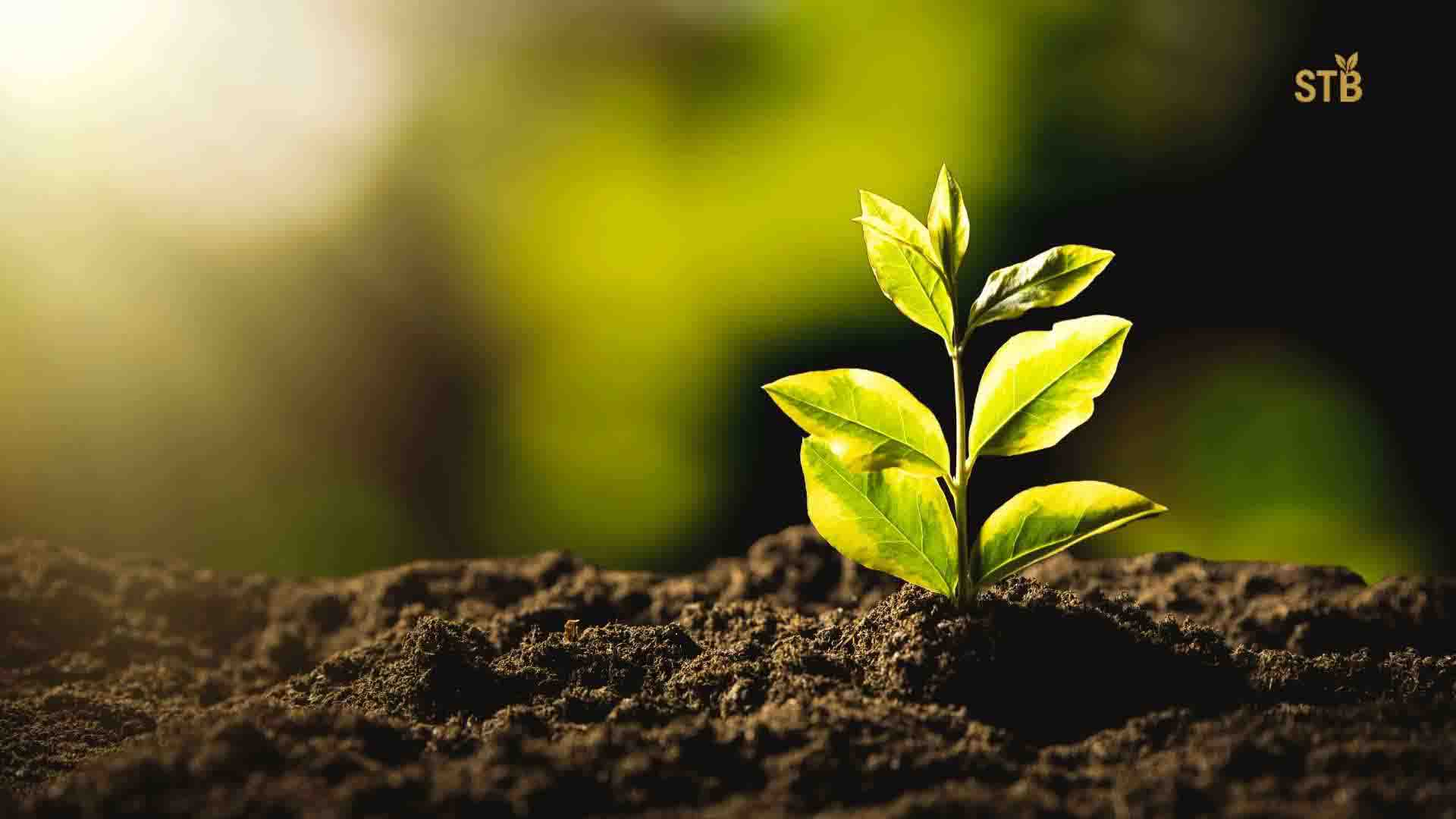
Ensuring a Vibrant Future for Bangladesh Tea
The Bangladesh Tea Board plays a pivotal role in regulating and promoting the country’s tea industry, overseeing everything from cultivation practices to market expansion. Its multifaceted responsibilities are critical for sustaining the industry’s growth, ensuring quality, and improving the socio-economic conditions of tea workers, especially considering the historical challenges faced by plantation laborers.
The industry, having suffered colossal damage during the 1971 war of independence and facing issues like malnutrition and inadequate medical facilities for workers, necessitates ongoing, focused interventions from the Board. This includes addressing the statelessness of many tea workers, who, despite living in the gardens for over 150 years and gaining citizenship after 1971, often lack fundamental land rights.
This situation underscores the urgent need for comprehensive policy reforms to secure their land tenure and integrate them fully into national development frameworks.
Frequently Asked Questions (FAQs)
What is the primary role of the Bangladesh Tea Board?
Its key functions involve overseeing cultivation, processing, and trading to ensure quality control and promoting the tea industry both domestically and internationally. This includes implementing policies to boost production and consumption within Bangladesh, while simultaneously strategizing to increase export volumes and secure a stronger presence in global markets.
How does the Tea Board support tea farmers in Bangladesh?
The Board facilitates access to modern agricultural techniques, provides training on sustainable farming practices, and offers subsidies for essential inputs like fertilizers and pesticides, thereby directly enhancing productivity and farmer livelihoods.
Q: What are the main functions of the Bangladesh Tea Research Institute?
The Bangladesh Tea Research Institute conducts vital research into new tea varieties, pest and disease control, and improved cultivation methods, acting as the scientific backbone for the industry’s advancement. Its efforts are crucial for developing resilient tea plants that can withstand changing climatic conditions and for enhancing the overall quality and yield of Bangladeshi tea.
Q: How does the Tea Board ensure the quality of Bangladeshi tea?
The Board establishes stringent quality control standards and conducts regular inspections of tea estates and processing factories to ensure compliance with national and international benchmarks, thereby safeguarding the reputation of Bangladeshi tea. Moreover, it actively promotes good agricultural practices and implements certification programs to assure consumers of the purity and safety of the tea products.
Q: What initiatives does the Tea Board undertake to promote Bangladeshi tea in international markets?
The Board engages in global marketing campaigns, participates in international trade fairs, and collaborates with diplomatic missions to showcase Bangladeshi tea to potential buyers and consumers worldwide, often highlighting unique regional flavors and ethical production practices. These promotional activities are complemented by efforts to secure geographical indication status for specific Bangladeshi tea varieties, aiming to enhance their market value and protect their authenticity. Such strategic branding efforts are essential for differentiating Bangladeshi tea in a competitive global market and attracting premium buyers.
Q: What challenges does the Bangladesh Tea Board currently face?
Despite its critical role, the Bangladesh Tea Board faces significant challenges, including the imperative to modernize aging infrastructure, address climate change impacts, and navigate complex international trade dynamics. Furthermore, the Board must contend with socio-economic issues within the tea garden communities, such as ensuring fair wages and improving living conditions for workers.
Q: How is the Tea Board addressing climate change impacts on tea production?
The Board is actively promoting climate-resilient tea varieties and sustainable land management practices, including reforestation and water conservation, to mitigate the adverse effects of changing weather patterns on tea cultivation. These proactive measures are vital for safeguarding the long-term viability of the tea industry in Bangladesh amidst increasing environmental uncertainties.
Q: What is the Tea Board’s role in promoting tea tourism in Bangladesh?
The Board actively collaborates with tourism authorities to develop and market tea estates as tourist destinations, aiming to enhance local economies and raise awareness about Bangladesh’s rich tea heritage. This includes supporting infrastructure development, creating immersive visitor experiences, and integrating tea garden tours with broader cultural and ecological attractions, thereby diversifying revenue streams for the industry.
Q: What are the future goals of the Bangladesh Tea Board for the tea industry?
The Board aims to increase tea production significantly, expand export markets, and enhance the welfare of tea garden workers through sustainable practices and technological advancements. These goals are underpinned by a strategic vision that seeks to leverage innovation in cultivation and processing, while simultaneously fostering a more equitable and resilient tea sector for all stakeholders. Furthermore, the Board endeavors to foster increased domestic consumption through promotional campaigns, aiming to establish tea as a staple beverage across all socio-economic strata within Bangladesh.
Q: How can stakeholders engage with the Bangladesh Tea Board for industry development?
Stakeholders can engage through various forums, workshops, and direct consultations organized by the Board, fostering collaborative efforts in policy formulation, research dissemination, and market development. This active engagement ensures that diverse perspectives, including those of tea garden workers and local communities, are considered in shaping the industry’s future direction, aligning with national development goals.
Moreover, the Board actively seeks to integrate scientific and local knowledge in its initiatives, recognizing the multi-faceted and interrelated factors, such as tea plant age, location, cultivation measures, socioeconomic considerations, and cultural aspects, that influence climate change adaptation in the tea sector.

